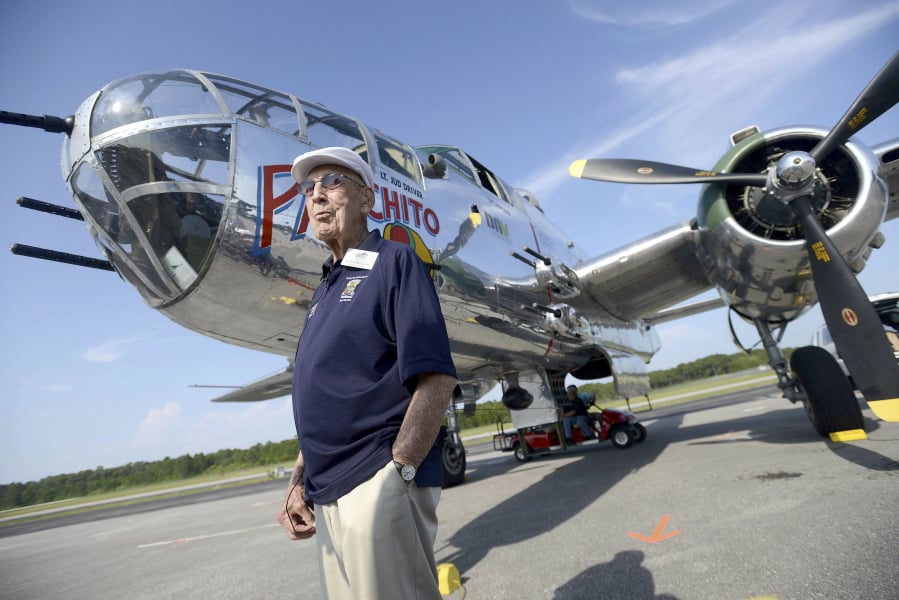DALLAS — Retired Lt. Col. Richard “Dick” Cole, the last of the 80 Doolittle Tokyo Raiders who carried out the daring U.S. attack on Japan during World War II, died Tuesday at a military hospital in Texas. He was 103.
Robert Whetstone, a spokesman for Brooke Army Medical Center in San Antonio, confirmed Cole’s death. Cole’s daughter, Cindy Chal, said he was having some heart issues but had walked into the emergency room.
Cole, who lived in Comfort, Texas, had stayed active even in recent years, attending air shows and participating in commemorative events including April 18, 2017, ceremonies for the raid’s 75th anniversary at the National Museum of the U.S. Air Force near Dayton, Ohio.
Chal said her father “enjoyed every minute” of his long, distinguished life.
Cole was mission commander Jimmy Doolittle’s co-pilot in the attack less than five months after the December 1941 Japanese bombing of Pearl Harbor.
Doolittle died in 1993. The Gen. James “Jimmy” H. Doolittle Archives are at the University of Texas at Dallas. Cole’s papers are also part of the school’s History of Aviation Collection.
Cole was a Dayton-area native who dreamed of being a pilot and after attending Ohio University, enlisted in the Army Air Corps in 1940. Stationed in South Carolina, he signed up as a volunteer for a secret mission he knew would be dangerous, but not much else about. They trained at Eglin Air Force to fly B-25 bombers on short takeoffs, in preparation for flying off an aircraft carrier.
The Raiders launched their assault April 18, 1942, in B-25 bombers from the USS Hornet. The crews of the 16 planes were “very quiet” as they neared Japan, Cole recalled, saying his role next to Doolittle was to “be seen, not heard. … You didn’t speak until spoken to.” But the country song “Wabash Cannonball” started running through his head and he unconsciously began tapping his toe, which caught Doolittle’s attention. He shot Cole a look, he recalled with a laugh.
Doolittle soon ordered bomb bay doors opened, and the attack was on against what turned out to be limited anti-aircraft fire in the surprise attack.
They headed to China, running out of fuel. Cole said Doolittle gave the command to bail out as they neared the coast, adding: “I wish you all good luck.”
Cole said it was scary to parachute into a dark “unknown” in rough weather. His parachute caught in a tree, leaving him dangling but safe. Chinese partisans helped lead him and other Raiders to safety.
Three Raiders died trying to reach China, and eight were captured by Japanese soldiers. Three were executed, and a fourth died in captivity.




